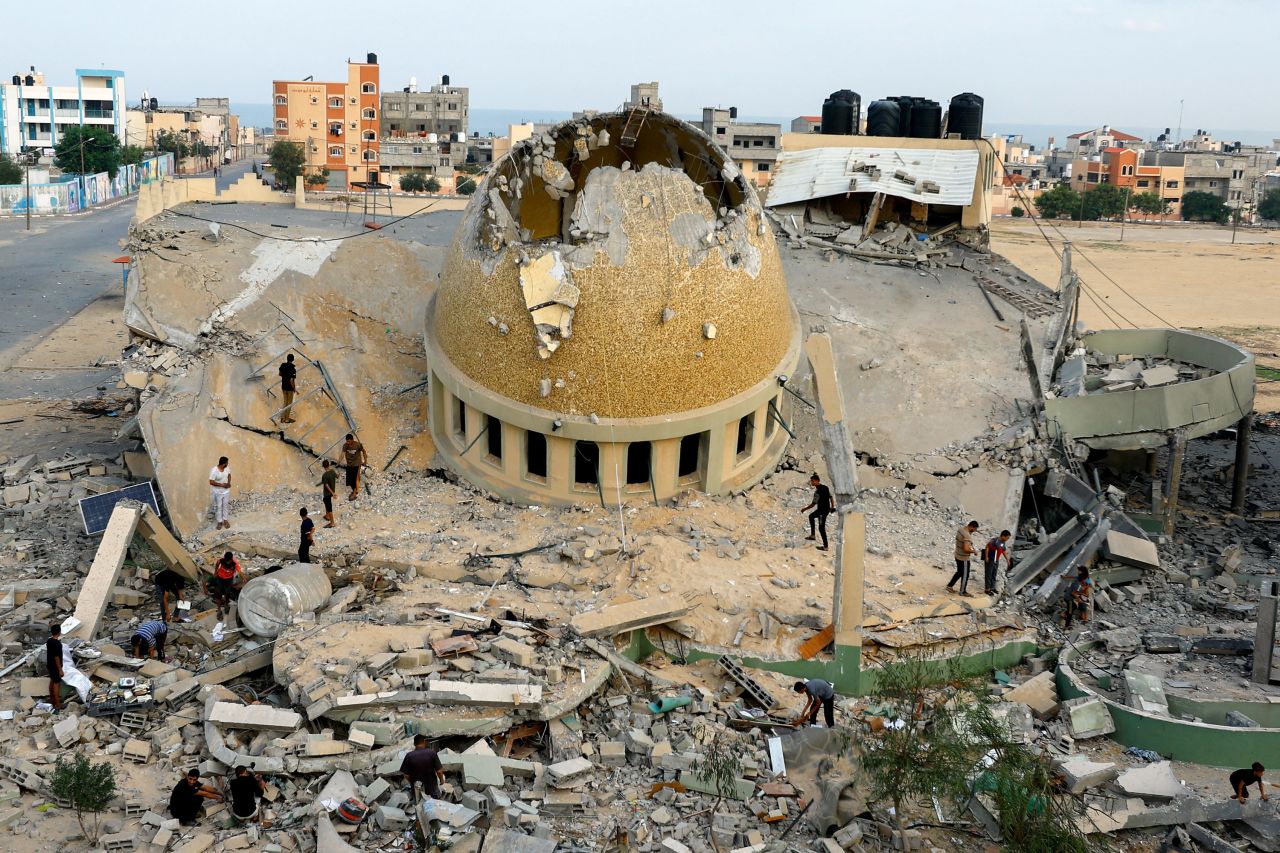Nuclear Concerns and Regional Security: Iran Attack Israel Israeli
![]()
Iran’s nuclear program has been a major source of tension and uncertainty in the Middle East for decades. The potential for Iran to develop nuclear weapons has raised concerns about regional security and the possibility of a nuclear arms race.
The Impact of Iran’s Nuclear Program on Regional Security
The potential development of nuclear weapons by Iran has significantly impacted the security landscape in the Middle East. Here are some key concerns:
- Arms Race: Iran’s nuclear program has fueled an arms race in the region, as other countries like Saudi Arabia and the United Arab Emirates have sought to enhance their own military capabilities in response. This has led to increased tensions and instability.
- Regional Conflict: The possibility of Iran possessing nuclear weapons has heightened the risk of regional conflict. Countries like Israel, which have expressed strong opposition to Iran’s nuclear ambitions, have threatened military action if necessary.
- Terrorism: There are concerns that Iran could provide nuclear technology or materials to terrorist groups, which could pose a significant threat to global security.
- Geopolitical Influence: A nuclear-armed Iran would significantly increase its geopolitical influence in the region and beyond. This could potentially disrupt the balance of power and lead to further instability.
International Sanctions and Diplomacy
The international community has responded to Iran’s nuclear program with a combination of sanctions and diplomacy.
- Sanctions: The United Nations Security Council has imposed numerous sanctions on Iran, targeting its nuclear program, financial institutions, and energy sector. These sanctions have aimed to pressure Iran to abandon its nuclear ambitions.
- Diplomacy: Diplomatic efforts have also been made to address the nuclear issue. The Joint Comprehensive Plan of Action (JCPOA), signed in 2015, aimed to limit Iran’s nuclear program in exchange for the lifting of sanctions. However, the US withdrawal from the JCPOA in 2018 has complicated the situation.
Iran and Israel’s Positions on the Nuclear Program, Iran attack israel israeli
Iran and Israel have vastly different perspectives on the nuclear program and its implications.
- Iran: Iran maintains that its nuclear program is for peaceful purposes and that it has no intention of developing nuclear weapons. It has also accused Israel of pursuing a nuclear weapons program and of being a threat to regional security.
- Israel: Israel views Iran’s nuclear program as a serious threat to its existence and has repeatedly stated that it will not allow Iran to develop nuclear weapons. Israel has also conducted airstrikes against Iranian nuclear facilities in the past.
Proxy Conflicts and Regional Instability

The involvement of Iran and Israel in proxy conflicts across the Middle East has significantly contributed to regional instability. Both countries utilize various non-state actors to achieve their strategic objectives, often engaging in covert operations and providing financial, military, and logistical support. These conflicts have had a profound impact on the region’s security, leading to prolonged violence, humanitarian crises, and the destabilization of fragile states.
The Syrian Conflict
The Syrian Civil War has become a battleground for Iran and Israel’s proxy war. Iran supports the Syrian government of Bashar al-Assad through the Islamic Revolutionary Guard Corps (IRGC) and its affiliated militias, including Hezbollah, which has a significant presence in Syria. Israel, on the other hand, has conducted airstrikes against Iranian targets in Syria, aiming to prevent Iran from establishing a permanent military presence and to disrupt its support for Hezbollah.
Lebanon
Hezbollah, a Lebanese Shia militia backed by Iran, is a key player in the region’s proxy conflicts. It has a strong military force and has been involved in various conflicts, including the 2006 Lebanon War against Israel. Hezbollah’s influence in Lebanon extends beyond its military capabilities, as it holds significant political power and plays a key role in the Lebanese government. Israel views Hezbollah as a major threat and has conducted airstrikes against its positions in Lebanon, aiming to deter its military capabilities.
The Gaza Strip
The Palestinian territories, particularly the Gaza Strip, have been a focal point for Iran and Israel’s proxy conflicts. Hamas, the Islamist group that controls Gaza, has received financial and military support from Iran. Israel has imposed a blockade on Gaza and has conducted military operations against Hamas, aiming to weaken its military capabilities and prevent its use of the territory to launch attacks against Israel.
Iran attack israel israeli – While the situation between Iran, Israel, and the Israeli people remains complex and sensitive, it’s important to find moments of peace and joy. Perhaps a delicious meal from one of the indian restaurants near me could be just the thing to lift your spirits.
Let’s hope for a peaceful resolution to the conflict and a future where everyone can enjoy good food and good company.
The tensions between Iran and Israel are a complex and sensitive issue, often dominated by headlines of conflict and mistrust. Yet, amidst the challenges, there are also stories of resilience and hope. Like the inspiring journey of Tom Craig’s Olympic career , a testament to dedication and perseverance, these stories remind us that even in the face of adversity, the human spirit can strive for excellence and create a better future.
The path towards peace and understanding may be long, but the unwavering pursuit of a shared vision for a brighter future is a powerful force that can ultimately bridge divides.